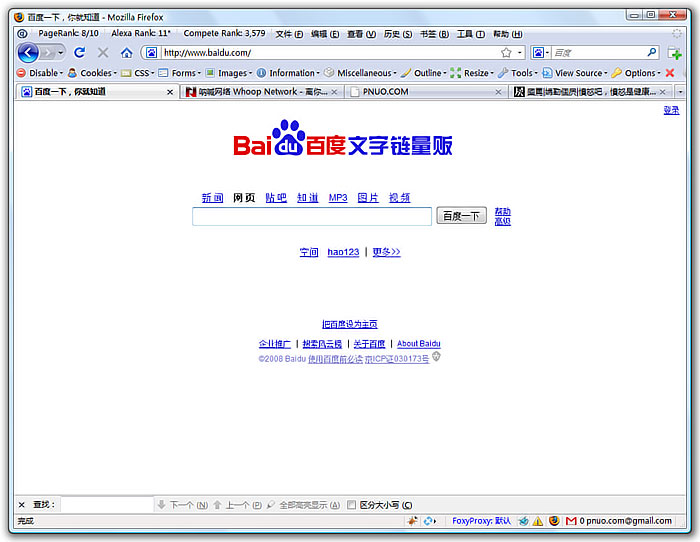Text link wholesale - Baidu
On November 13, 2008, a forum themed "Search·Future" will be held at the Kunlun Hotel. Indeed, search has become one of the most basic Internet behaviors, and search engines are important tools for people to obtain information. In China, the usage rate of search engines is close to 70%, and more and more people use search engines to gain knowledge, seek pleasure, or even explore the meaning of life.
As for the Internet, Fearless is a latecomer, without any professional training, and no certificates to show in order to prove "professionalism". However, when it comes to search engines, I have more authority than others, because what I already know, what I am going to know, and what I don't know yet... all come from searches. During the years working in the Internet industry, I have enjoyed exploring the various featured products launched by different search engines. Not only did they help me improve my professional skills on my own, but they also helped me live a better life.
Well, search engines have their particularities. Since the operators are not non-profit organizations, attracting users, activating the market, and making profits are their fundamental pursuits. Doing some profit-driven things is therefore understandable, but being too shameless makes people feel awkward. Below, let's take a look at why some search engines' "legitimate" commercial practices can be described as shameless.
Bidding ranking means that users who pay money can rank at the top of the search results page. These paying users are actually businesses. They promote their services or products, and displaying their site links in prominent positions on the search results page is the best advertising method. So, Fearless would like to ask: do these deliberately arranged results really help us? Do they really provide complete answers to my questions? Obviously, these results have no value to users, none at all. It's possible that many novice users don't know the difference between bidding ranking and natural ranking. However, the answers given by the search results are packaged, modified, or even deliberately fabricated by the bidders to deceive users. One might fall for it once, twice, but if it happens too many times, who would still use such a search engine?
Businesses may argue: we didn't fabricate anything, nor did we deceive anyone. Our services are of high quality, beneficial to both users and customers. No problem, Fearless completely believes that there are many providers of high-quality services and goods who use bidding rankings to quickly make the market aware of their existence, or to obtain funds for continuing research and development of new products and services, achieving this goal through the benefits of their services and products. However, you may not realize that buying bidding rankings is equivalent to aiding and abetting evil-doers, isn't it? Baidu uses bidding rankings to make them and us, who haven't seen much money, feel that they have vast and substantial incomes. Did they use these incomes to strengthen their search technology? No. Did they use this money to improve their services? No. What are they doing with this money? They are using this money to play around with fancy but useless stuff like Baidu Hi, Hi Baidu, and Baidu Youa, which they think can continue to make money. In the future, they will likely become even more greedy and unscrupulous.
Many blogs, personal websites, and large portal sites sell text links to get some revenue, which is completely acceptable. At least, when submitting these links, strict title and content reviews are required. We want to make money, that's true, but the things businesses want to promote must also be useful and in line with public interests. Search engines need to make money, that's definitely allowed. But losing direction and the foundation of their existence for the sake of money, what do we need you for then?
The fact is clear: Baidu is no longer a search engine, but rather a quite authentic and professional text-link vending site.




